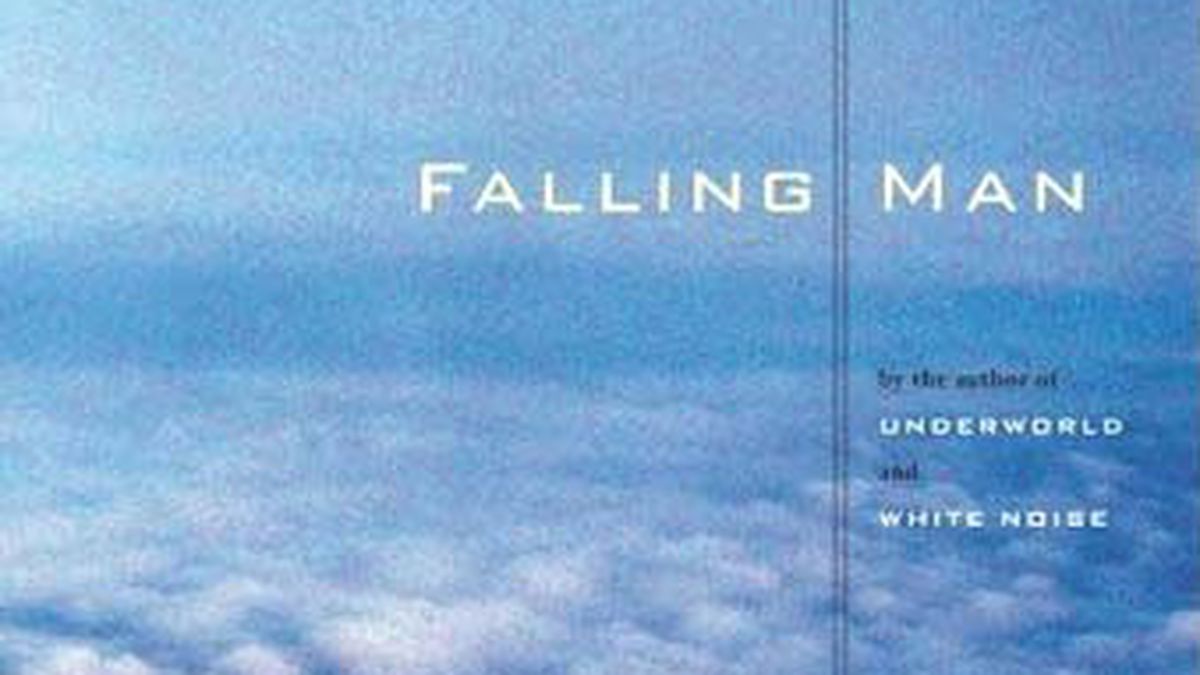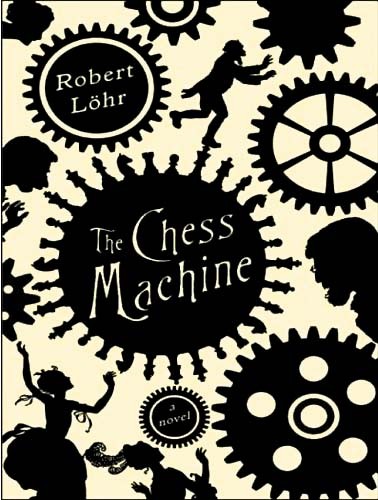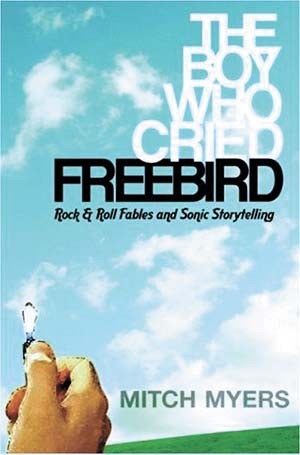Falling Man
By Don DeLillo
Scribner
Edition: hardcover
Compare the front cover of Don DeLillo’s 1997 magnum opus, Underworld, with the back cover of his new book, Falling Man, and you’ll get some sense of what to expect from this long-awaited September 11 novel. On Underworld‘s cover, the Twin Towers take center stage, rising into the foggy sky like otherworldly monoliths; on the cover of Falling Man, you see a near-microscopic image of their upper stories emerging from a frothy sea of clouds. If Underworld was an epic exploration of the political and cultural machinations of an entire era in American history, then Falling Man is a subtle snippet of said history, subversive in how it undermines exactly what we crave and expect from this popular chronicler of our country’s highs and lows.
Though the actual terrorist attacks on New York bracket the book — in harrowing episodes full of eerie details like the flash of falling bodies seen through an office window — it is their effects on the nuclear American family that are important here. The nuclear family, in a DeLillo novel, is a curious animal: tempestuous, bizarre, and possessed with preternatural skills in self-analysis. The husband, wife, and adolescent son in these pages are no exception. Keith, an employee at the World Trade Center, escapes the attacks and returns, for no apparent reason, to his ex-wife Lianne’s house, where she and son Justin slowly reintegrate him into the life he left behind.
Each character has his or her own unique way of dealing with the trauma: Keith performs physical therapy exercises for his wounded wrist and starts an affair with a victim’s wife; Lianne deconstructs her recently rejuvenated relationship and teaches creating writing classes to Alzheimer’s patients; Justin and his young buddies watch the skies with binoculars and wait for the next attack from the al-Qaeda leader they refer to as “Bill Lawton.” Throw in Lianne’s mother and her art-dealer lover and you have your standard DeLillo narrative, complete with the near-robotic speech patterns that must sound natural only in the author’s head.
On a purely technical level, Falling Man is traditional DeLillo, which means that you’ll either be completely captivated by the writing or scratching your head as to who exactly, aside from stuffy intellectuals and critics, reads prose like this. Thematically, however, there is a depth to this work unexpected in such a slender novel. This is not a book about the geopolitical aftershocks of September 11, Michael Moore conspiracy theories, or another attempt to answer the question “Why do they hate us?” Falling Man is about trauma — about the ways in which the human body and mind deal with a catastrophic overload of sensory information. For once, the author’s minimalist and monotone writing style feels less like an awkward stylistic choice and more like the perfect human response to an event that left us all — whether for days, weeks, or years — uncomfortably numb. —Zak M. Salih
The Chess Machine
By Robert Löhr
The Penguin Press
Centuries before Deep Blue trounced Kasparov, the thinking machine to beat was the Mechanical Turk. This proto-automaton, built to resemble a turbaned Ottoman seated before a bulky tabletop cabinet, astounded the heads of 18th-century Europe with its ability to play — and win — complex games of chess against human opponents. While exhibitions of its abilities always began with inventor Wolfgang von Kempelen opening the machine’s cabinet to reveal the intricate clockwork powering its deductions, suspicions still percolated about the Turk’s true nature. Eventually the secret leaked out — the Turk was surreptitiously powered by a human chess master hunkered down in a hidden crawlspace behind the spinning gears, tracking the progress of the game overhead on his own miniature chess board, and manipulating the Turk’s hand like a puppeteer.
While those facts are well-documented, there’s still some mystery surrounding the Mechanical Turk. Who was the nameless master inside the machine? According to Robert Löhr’s historical-fiction novel The Chess Machine, the cabinet contained one Tibor Scardanelli, a devout yet too-thirsty dwarf whose aptitude for chess fortuitously sprung him from a dismal jail cell into von Kempelen’s servitude. Tibor gladly accepts his benefactor’s conditions that he must remain inside his home at all times, lest observant skeptics connect von Kempelen’s new half-size houseguest with the enigmatic machine, but soon temptation sets in — first in the form of von Kempelen’s aristocratic mistress, Ibolya, and then the lissome servant girl Elise, recently hired by the family to mind the house but in reality a secret agent hired by von Kempelen’s extremely suspicious rival Knaus to uncover the device’s true workings.
Although Löhr has an opportunity to lard his story with ideas about technology, deception, or gamesmanship, he instead settles for breathless and unsophisticated daytime-drama shenanigans — one convenient accidental death for the sake of the plot is forgivable, but three? — and never shows any attempt at subtext beyond blurting out the occasional chess metaphor. Worse, his robotic prose kills any beach-read potential since every sex scene and action sequence teletypes out like a list of MapQuest directions. Tech-minded readers hoping for a steam-punk venture à la The Difference Engine will be sorely disappointed. The original Mechanical Turk was a mesmerizing triumph of engineering, as long as you didn’t open the cabinet door and find the human genius inside. Opening The Chess Machine, however, reveals there’s nobody home. —Violet Glaze
The Boy Who Cried Freebird: Rock & Roll Fables and Sonic Storytelling
By Mitch Myers
HarperCollins
Edition: hardcover
Mitch Myers might have done better to split The Boy Who Cried Freebird into separate halves: one devoted to straightforward rock journalism and another for fiction-oriented CD reviews and tall tales best told over tallboys. Intercut, the author’s assorted short takes — culled from All Things Considered, Magnet, Tracking Angle, Smug, Newcity, and Harp, among other media outlets — only serve to nearly cancel one another out. So a farcical tale of a concertgoer who routinely requests “Free Bird” until a band inexplicably acquiesces shares real estate with an appreciative rundown of minimalist godfather Terry Riley’s career; and a quick Captain Beefheart review disguised as the prelude to a marital spat is followed, some sixty pages later, by an informative, sourced-to-the-hilt feature on Doug Sahm.
Myers is at his best at extreme-soberly matter-of-fact or it-goes-to-11 bonkers. A re-evaluation of Metal Machine Music demystifies Lou Reed’s Trojan horse pre-noise opus for those not yet brave enough to take it on; ditto for “What Can You Do That’s Fantastic?,” an in-depth overview of Frank Zappa’s work that portrays the late musician as an exacting, visionary taskmaster on the order of James Brown. Myers’ shaggy-dog fabrications, on the other hand, rock that poised yet ludicrous stance found in J.D. Salinger’s “Hapworth 16, 1924” or those Isaac Asimov trifles spawned by a bet or a dare. Check the one about the Grateful Dead fan who escapes a bland, late-21st-century nonexistence via time travel to catch his heroes in their prime — after being accosted and harassed by Sonny Barger. Elsewhere, the Mekons are offered up as mood music for a Linda Lovelace-spurred mass wanking session for preteen boys who make statements like, “My dad says they’re from England and used to inhabit a sociopolitical/musical realm somewhere between the Clash and the Pogues.”
Sometimes Myers’ gambits don’t quite work. On paper, “The Ballad of John Henry and the Wheels of Steel” — a stirring drummer-vs.-turntablist update of the John Henry folk tale — can’t help but disappoint when compared to Myers’ dramatic reading of the story on NPR’s All Things Considered. For the most part, though, Freebird will sate anyone lusting for intelligent, polite rock writing and dubiously weird lore.
—Raymond Cummings
















